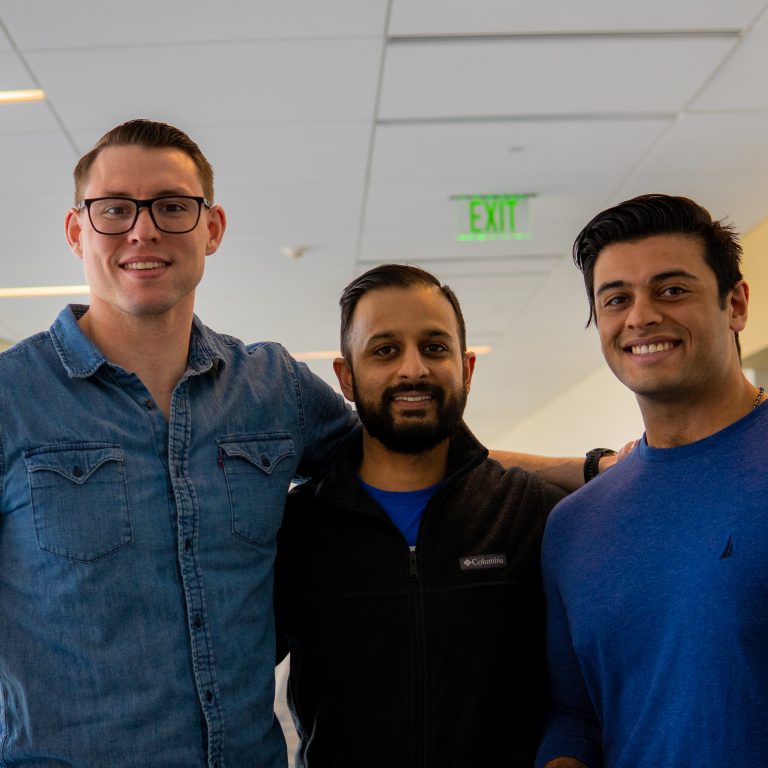The Preventive Medicine Podcast
Mental Health: The Mind-Body Connection – Dr. Mitesh Patel MD
Episode notes

Mitesh Patel M.D.
Dr. Mitesh Patel is a psychiatric physician practicing in Indianapolis, Indiana who is a an advocate for the practice of preventive medicine with regards to mental health. Dr. Patel completed his medical school at the Ross School of medicine before completing his residency at the University of Louisville. During his time in medical school, Dr. Patel was introduced to the field of psychiatry and fell in love with the transformative nature of the field. Dr. Patel is passionate about helping others improve their mental health through practices such as finding your flow state, practicing mindfulness, and focusing on yourself rather than what you see on your phone.
This hour long podcast is an engaging conversation talking about the issues behind the growing mental health crisis of the USA and provides practical practices to enhance mental well-being. Find the podcast on your favorite podcast app or below on the web player! Want a summary of the podcast? Check the show notes below!
Dr. Patel practices what he preaches and doesn’t maintain any social media accounts and ultimately wishes to practice medicine from the comfort of a van as he travels the country. Instead of finding him on social media, he would like you to check your screen time and start practicing some preventive techniques for your mental well-being!
Show Notes
(1:00 – 4:00) – Introductions
Question 1 : Tell us a little bit about yourself and why you decided to go into medicine
(4:00 – 7:20) – Mental Health and Preventive Medicine
Question 2: When you think about prevention and medicine you think about the physical aspect such as nutrition, diet, exercise, and the other things that come along with that. So introducing psychiatry into the field of preventive medicine is very interesting which you can provide unique insight into this. What can you say about the role of psychiatry in preventive medicine?
Question 3: Evidence based medicine is becoming more important in every specialty but even moreso in psychiatry which has been more of a subjective specialty thus far. What do you think about the direction psychiatry is going in?
(7:20 – 12:40) – Evidence Based Techniques to Promote Mental Health
Question 4: Have there been any evidence based techniques for self-care in terms of preventing psychiatric issues?
Question 5: What kind of mindfulness techniques are you talking about here? Is it like sitting down and staring out a window or something more active?
(12:40 – 16:00) – The Roots of Anxiety
Question 6: In the Book of Joy, a conversation between Archbishop Tutu and the Dalai Lama, the Archbishop talks about how ambition is built into the fabric of our society which often fuels a lot of people’s anxiety. Is it ok to not be ambitious?
Question 7: Do you think we have lost connection with others and that also fuels our anxiety?
(16:00 – 18:20) – What Does Being Mentally Healthy mean?
Question 8: What does it mean to be mentally healthy?
(18:20 – 21:40 ) – Success and Happiness
Question 9: How do you limit yourself from pushing hard like the rest of the world to be successful if pushing that hard decreases from your happiness?
Question 10: Isn’t being successful being happy?
(21:40 – 27:00 ) The Flow State and Hobbies
(27:00 – 33:46) – The Role of Social Media in Anxiety and Depression
Question 11: It seems that social media has been pushing that you should be chasing your goals 24/7, is that an unhealthy mindset to have?
Question 12: Do you think parents should be limiting their kids screen time to be preventive of the situation that we are seeing with social media and anxiety/depression?
(33:46 – 39:27) The Integrative Approach to Health
Question 13: What is the role of gut health and nutrition in mental health?
Question 14: How do you approach mental health and health in general from the biopsychosocial model of health?
(39:27 – 45:25) – Beating the Stigma
Question 15: How do you get beyond the current stigma of seeking help, medical or not, for mental health issues and preventing more severe consequences of mental diseases?
(45:25 – 51:00) Mental Resiliency and Functional Outcomes
Question 16: How do we make sure not to over-diagnose mental diseases and help people recognize that it is OK to live with some level of anxiety or feeling down? How do we let people know what is normal and when they should be seeking help?
(51:00 – 58:30) Practical Advice to Practicing Preventive Mental Health
Question 17: Give us some practical takeaways that someone can practice in their lives to practice preventive medicine with regards to mental health?
(58:30 – 1:01:34) Closing Remarks
Question 18: Tell us a little bit about your dream of traveling the world and doing telepsych?


